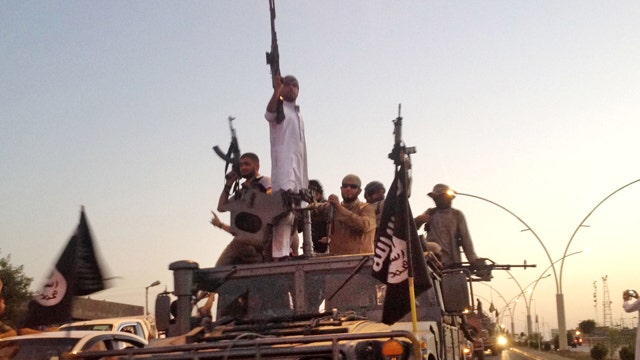There is perhaps no group that has suffered more from the wrath of ISIS than Iraq's Yazidi community.
In early August 2014 ISIS attacked their centuries-old homeland surrounding the city of Sinjar (Shingal). Thousands were slaughtered, thousands were captured and thousands had nowhere to go but to the top of Mount Sinjar where thousands died of starvation and dehydration.
But in the early hours of Tuesday morning, many of those genocide survivors -- living in squalid ripped tents with little aid, electricity or medical care -- again fled for their lives, this time running down the mountain as Turkish warplanes struck in and around the mountain top for almost an hour.
"The Yazidis of Mountain Shingal are terrified. They feel threatened and unsafe. They thought ISIS days were almost done and they can return to their villages and towns, but now they face a bigger problem," Yakhi Hamza, country director of the 1st New Allied Expeditionary Force, a humanitarian nonprofit delivering medical help to the most vulnerable Yazidis, told Fox News after inspecting the damage. "Turkey is a more dangerous threat than ISIS and attacking Yazidis from above."
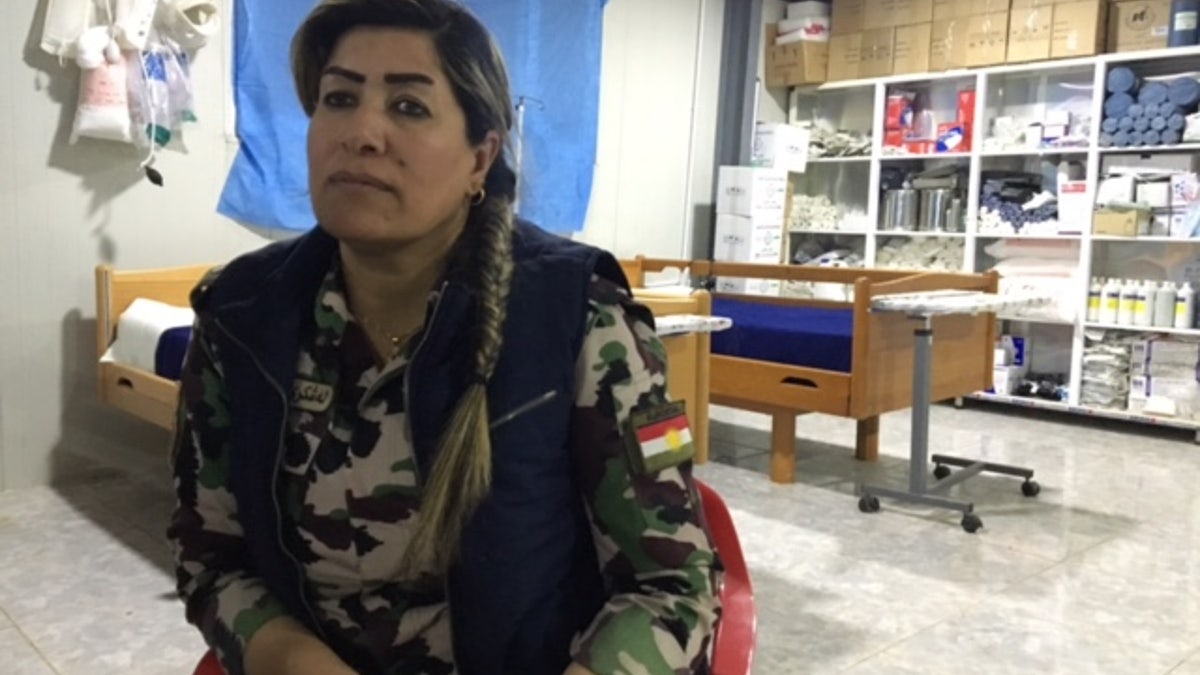
Nurse Khansa Ali in her clinic before Turkey destroyed it. (Hollie McKay)
Among the twice-displaced Yazidis now huddling in tents at the foot of the mountain are sex slave survivors and the elderly.
The strikes are reported to have killed at least 70 people in the Iraq/Syria border area, with one bomb hitting a Kurdish Peshmerga post on Mount Sinjar, killing at least five and critically wounding several more. A missile also struck a communications tower in the area, destroying a key lifeline to the outside world for the destitute and traumatized Yazidi community.
Before these strikes, the mountain itself was a haunting place, littered with burned vehicles and strewn with belongings from the day of the ISIS rampage. The farming community left languishing there survived scorching summers and bitter snow-struck winters with next to no outside assistance. Their only medical facility near the mountain peak also became a casualty in this week’s Turkish assault.
"The strikes hit the only civilian clinic on the Mountain Shingal," Hamza said. "The clinic was run by a volunteer, Dr. Khansa, who was selflessly serving displaced Yazidi community on the mountain from Day One."
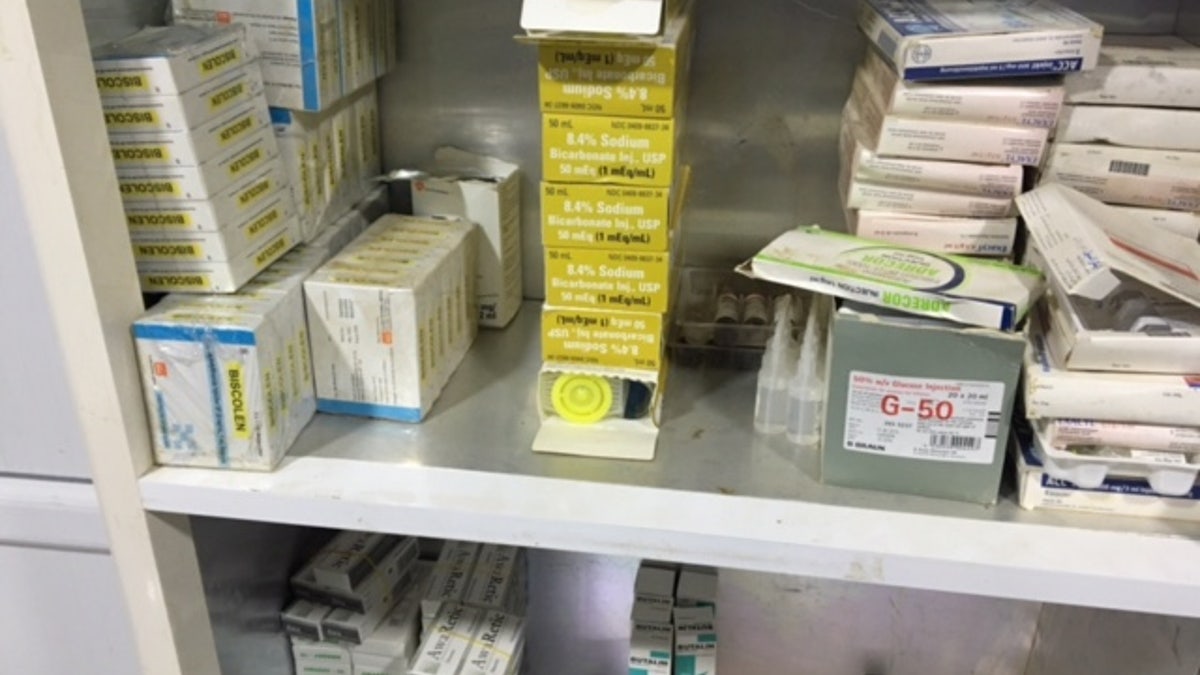
The clinic's paltry medicine cabinet. (Hollie McKay)
Before being bombed the clinic, previously visited by Fox News, was a makeshift room with six beds and a handful of medications run by a 36-year-old woman the locals lovingly call "Hero Doctor Khansa." She is, in fact, not a doctor but a nurse from Rojava and a refugee herself -- fleeing neighboring Syria after ISIS attacked in 2014. Nurse Khansa Ali told Fox News she simply started trying to help those in need by visiting other displacement tents until early 2015 when she was able to set up the small clinic.
"I stay here and I work 24 hours if I have to, whenever someone walks in," Khansa told Fox News from the clinic late one night last November. "People have many problems, skin diseases, pregnancy complications. The hardest part to help is with the psychological illnesses. The children suffer the worst."
Sheer luck kept Khansa alive. She awoke to loud noises and the sound of a hovering warplane. Quickly she awakened her patients. Together they ran out just in time to miss the Turkish bombs that leveled the clinic and claimed the lives of many of Khansa's Peshmerga companions. As of Wednesday the stretch of road to the bombing location remained closed.
Sinjar remains a contested area between Baghdad and the semi-autonomous Kurdish capital of Erbil. Iraq's foreign ministry has condemned the Turkish attacks as a violation of Iraqi sovereignty, and major political parties in the Kurdistan Regional Government also condemned the fatal attacks.
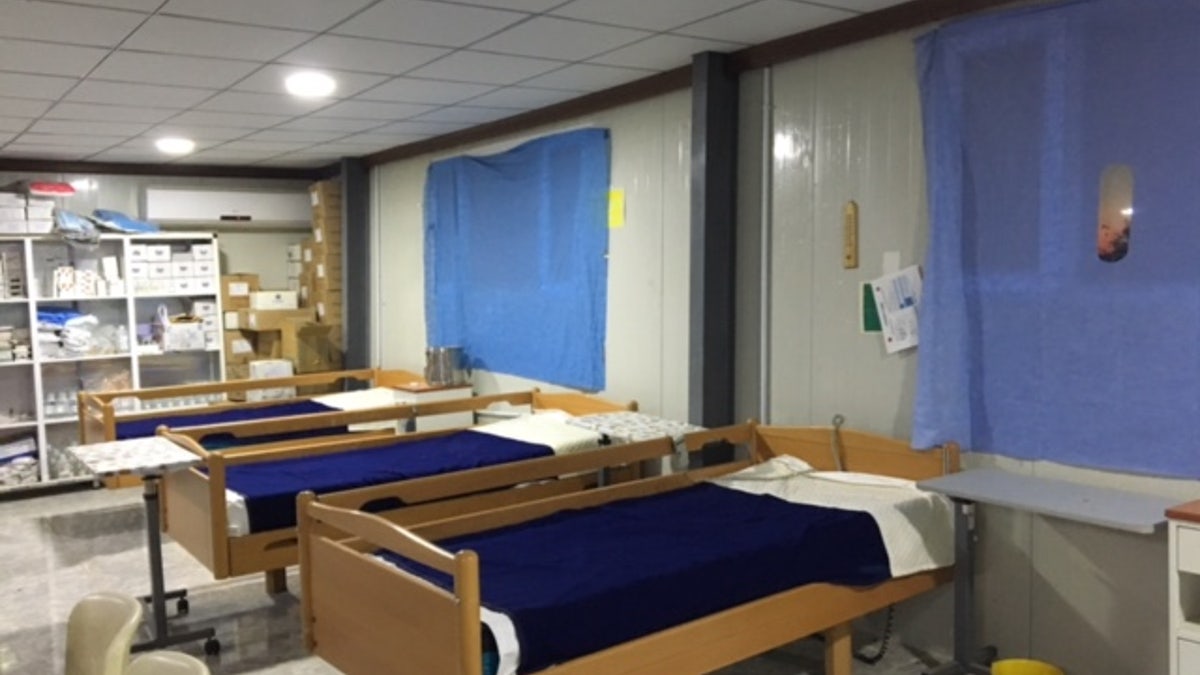
A view of the few beds at the now-destroyed Yazidi clinic. (Hollie McKay)
However, Turkish officials justified Tuesday's attack as necessary for decimating "terror hubs" and stopping militants from the Kurdistan Workers’ Party, also known as the PKK, from transporting terrorists and arms into Turkey to attack Turks.
But the U.S. State Department has expressed "deep concern" over the strikes, with spokesperson Mark Toner implying that Turkey cannot pursue its grievances against the PKK at the expense of the fight against ISIS. The U.S.-led coalition is said to have received a one-hour warning prior to the attack. The Americans requested that Turkey not conduct the attack due to concerns over coordination. However, the NATO ally proceeded, targeting positions of the predominantly Kurdish People’s Protection Units, also known as YPG, as well as PKK positions around Mount Sinjar.
The YPG is the primary ground force supported by the U.S. in the fight against ISIS in Syria. The YPG is closely affiliated with the PKK, which has for decades fought for Kurdish independence from Turkey. It is the PKK’s fight against Turkey that has caused the group to be designated a terrorist organization in the United States.
"Turkey is a more dangerous threat than ISIS [which is] attacking Yazidis from above."
While it is hardly unusual for Turkish planes to bomb the mountainous region between Iraq and Turkey, some 70 miles from Sinjar and where the PKK is mostly situated, this week's air assault into Iraq and Syria has been met with anger and suggests tensions within NATO are inflaming.
Turkish President Recep Tayyip Erdoğan has vowed not to let Sinjar become a PKK base and cautioned that the strikes will continue.
"Everyone is scared. But they knew straight away that this was Turkey. The threats had been coming," one Yazidi from Sinjar, who requested he not be named, told Fox News. "If someone doesn't do something, it will happen again. Yazidis don't want this war."
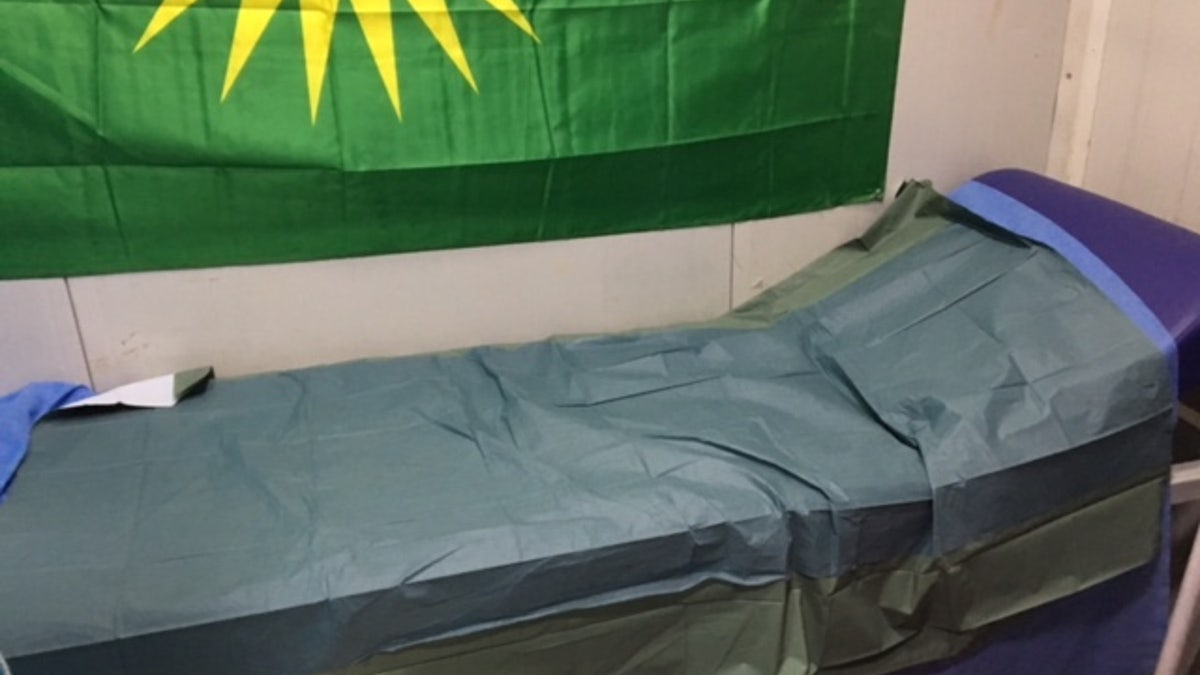
A view of one of the beds before the Yazidi clinic was destroyed by Turkey. (Hollie McKay)
PKK groups remain scattered around Sinjar and its surrounding villages and are viewed by some Yazidis as crucial protectors after the Peshmerga and Iraqi Army withdrew from their positions on the morning ISIS marched in, a withdrawal that enabled the ISIS slaughter of Yazidis who did not escape in time. Since then many Yazidis have told Fox News that the PKK militia came to their defense -- fighting back against ISIS and rescuing vulnerable women and children.
Meanwhile, a YPG solider on the Syrian Rojava side said the Turkish attack flattened their media center. The following day, evacuations of their area continued and many of their medical personnel treating the wounded were also in hiding.
By week’s end YPG personnel were still counting their dead.




















